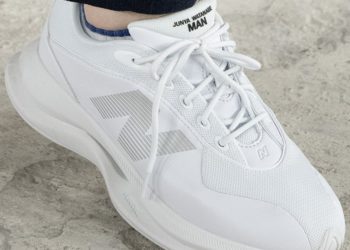An alternate juror in Sean Combs’s federal trial said in an interview that he agreed with the jury’s verdict, which found the music mogul not guilty of sex trafficking and racketeering conspiracy. Combs was convicted of two counts of a lesser charge, transportation to engage in prostitution, and remains detained while he awaits sentencing.
“I understand how my fellow jurors came to that conclusion,” the alternate, a Manhattan man named George, said in an interview on Thursday with The New York Times.
As an alternate, George was not present for the deliberations by the jury of eight men and four women who reached the verdict, though he was seated in the jury box for the entirety of the case, and said he took some 350 pages of notes.
He described the panel as a collegial group that ate lunches together and followed the judge’s rules not to discuss the case until they had been told to decide on a verdict.
The jury reached its verdict on Wednesday morning after about 13 and a half hours of deliberations.
The jurors in the case were granted anonymity by the judge to protect their privacy in a high-profile trial. The Times is publishing only George’s first name because of his concern that he might face harassment. No other jurors have spoken publicly about the case.
To corroborate George’s identity, The Times examined public records and his social media accounts, and questioned him about his answers to the judge during the public jury-selection process. He also shared an image of the juror badge given to him by the court.
George said that the defense had been successful in poking “holes” in the accounts of some of the government’s witnesses, and that the mogul’s legal team had established a reasonable doubt in regard to the major charges.
The alternate said he had not been persuaded by the prosecution’s case that Casandra Ventura and “Jane,” the two former girlfriends of Mr. Combs’s at the center of the case, had been sex trafficked.
“I don’t think it was forced,” George said of the women’s involvement in the sexual encounters, saying they appeared to be “willing participants.”
A substantial portion of the testimony at trial concerned Mr. Combs’s violence, with multiple witnesses testifying to his explosive temper. The prosecution argued that this was part of how he coerced Ms. Ventura, the singer known as Cassie, into unwanted sex. Jurors repeatedly saw a hotel security video of Mr. Combs assaulting her.
George seemed persuaded by the defense’s strategy to admit Mr. Combs’s violence — Marc Agnifilo, the mogul’s lead lawyer, called the hotel assault “unforgivable” — but argue that it did not match the crimes he was charged with.
“He wasn’t on trial for domestic violence,” George said.
Another defense strategy appeared to have been effective on George: humor.
In his closing argument, Mr. Agnifilo attacked the government’s case with withering sarcasm, including the allegation that a member of Mr. Combs’s security team had kidnapped an employee for five straight days of lie-detector tests — while bringing her home each night. George recalled how Mr. Agnifilo addressed the jury about that situation.
“And the defense said, well, but she got to go home every day,” George recalled. “She was about as kidnapped as you were.”
George also described the explicit video clips that the prosecution and the defense played for the jury, which showed sexual encounters involving Ms. Ventura and Jane. Because they included explicit sexual activity involving people who were considered victims, the judge did not allow the videos to be seen by the public or the news media. Jurors wore headphones while watching them on private monitors.
The videos did contain graphic sex, George said, but he noted that many scenes were of people rubbing baby oil on one another.
“It was,” George said, “just another part of the evidence.”
Olivia Bensimon contributed reporting. Susan C. Beachy contributed research.
Ben Sisario, a reporter covering music and the music industry, has been writing for The Times for more than 20 years.
The post Alternate Juror at the Sean Combs Trial: ‘I Understand’ the Verdict appeared first on New York Times.




